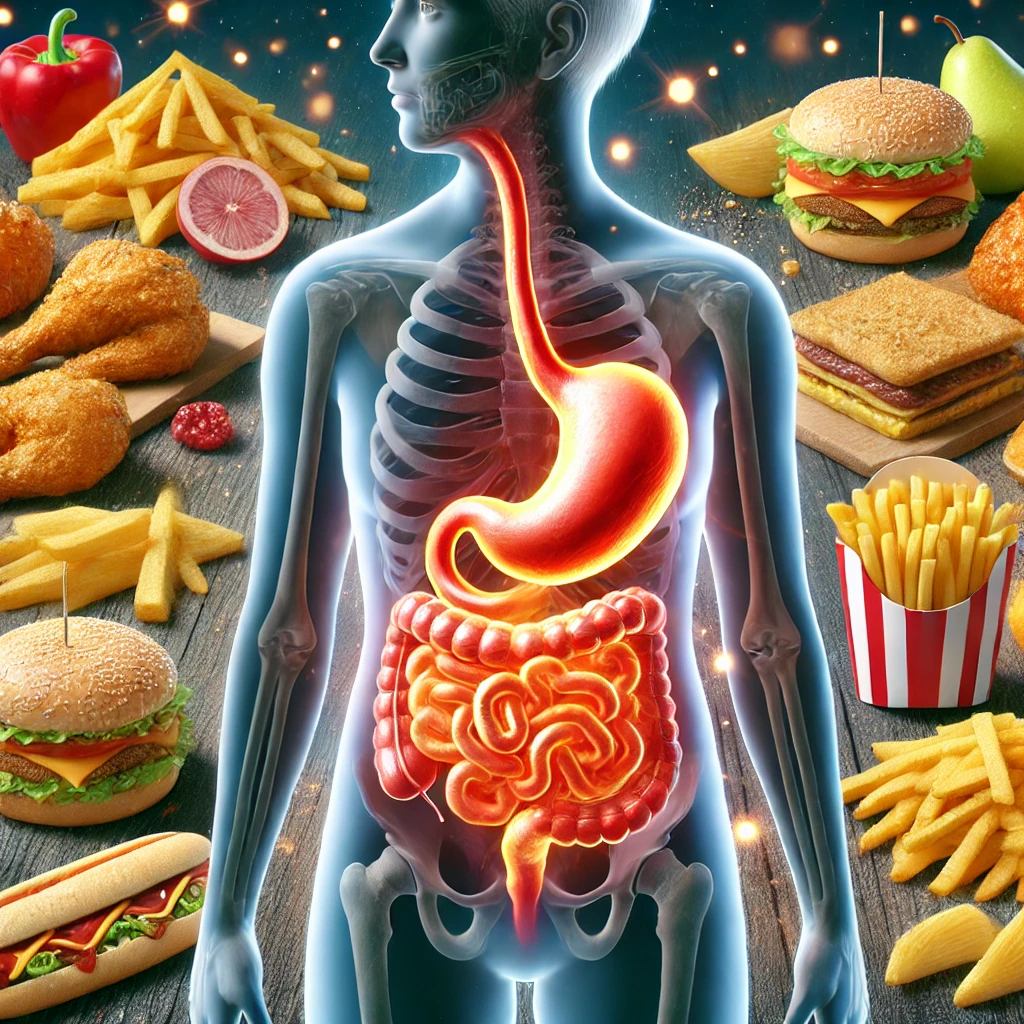The Challenge of Digesting Greasy Foods
Greasy meals can be difficult to digest for several reasons, affecting those with Crohn’s disease and others. Let’s examine why oily foods challenge the digestive system.
High Fat Content: A Digestive Hurdle
Fat is more difficult for the body to digest than carbs and proteins, taking longer to break down. This can slow the digestive process, causing sluggishness, bloating, and discomfort.
Excessive Stomach Acid Production
Consuming high-fat, greasy foods can stimulate excessive stomach acid production, leading to various digestive issues. While some acid is necessary for digestion, too much stomach acid can irritate the stomach lining, causing discomfort and unpleasant symptoms.
Heartburn: A Common Consequence
Heartburn, a burning sensation in the chest or neck, is a frequent result of excess stomach acid. It occurs when stomach acid flows back into the esophagus, causing discomfort and difficulty swallowing or lying down.
Indigestion and Its Symptoms
Excess stomach acid can also cause indigestion or dyspepsia, characterized by bloating, nausea, burping, and upper abdominal discomfort. These symptoms often appear shortly after consuming fatty or greasy foods.
Long-term Risks of Excess Stomach Acid
Prolonged exposure to excessive stomach acid can damage the stomach lining, potentially leading to serious conditions like gastritis or peptic ulcers. If left untreated, these can cause persistent discomfort, bleeding, and other complications.
The Importance of Dietary Choices
To prevent and manage the effects of excess stomach acid, it’s crucial to be mindful of diet choices, especially regarding high-calorie and high-fat meals. Incorporating more nutritionally balanced foods and seeking medical advice when necessary can help maintain digestive health.
Fiber Deficiency in Greasy Foods
Fried and processed foods typically lack fiber, which is essential for efficient food movement through the digestive tract and regular bowel movements. Insufficient fiber intake can lead to constipation.
The Impact of Different Fat Types
The type of fat in foods matters. Saturated and trans fats, common in fried foods and fatty meats, are harder to digest than unsaturated fats found in olive oil or avocados.
Cooking Methods and Digestive Health
Deep-frying foods at high temperatures in unhealthy oils can make them excessively oily and produce harmful substances that further irritate the digestive system.
Tips for Healthier Digestion
To promote better digestive health: limit fried foods, choose leaner protein sources, prioritize whole foods high in fiber, practice portion control, and eat mindfully to avoid overwhelming your digestive system.
